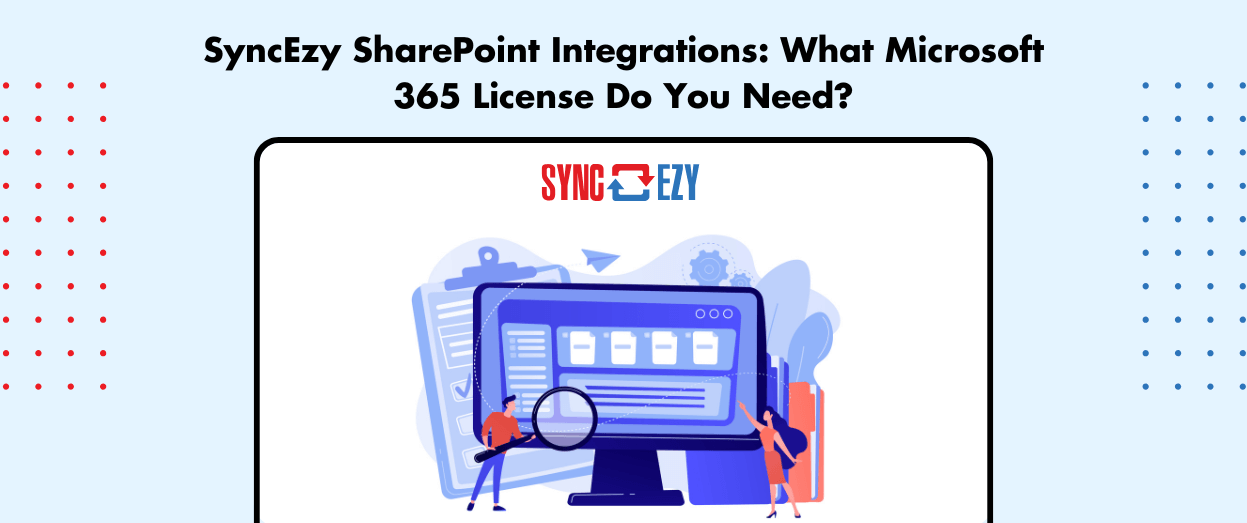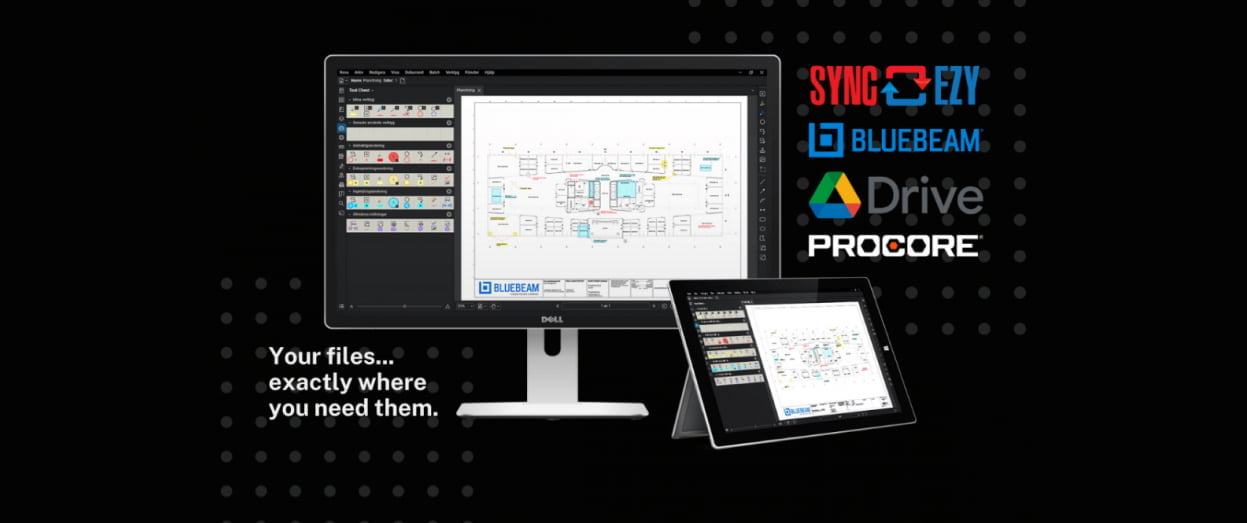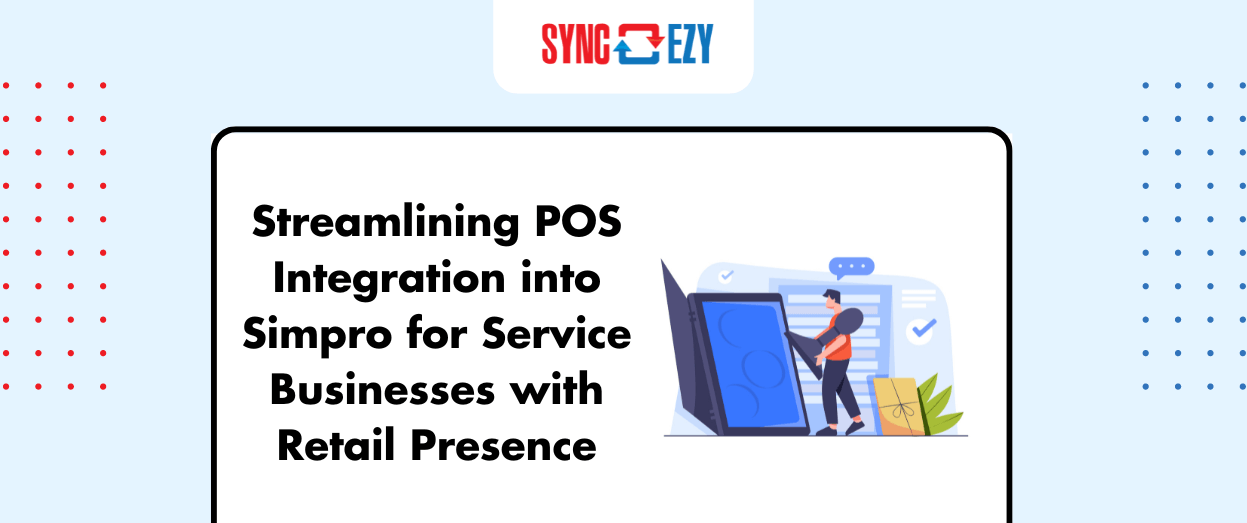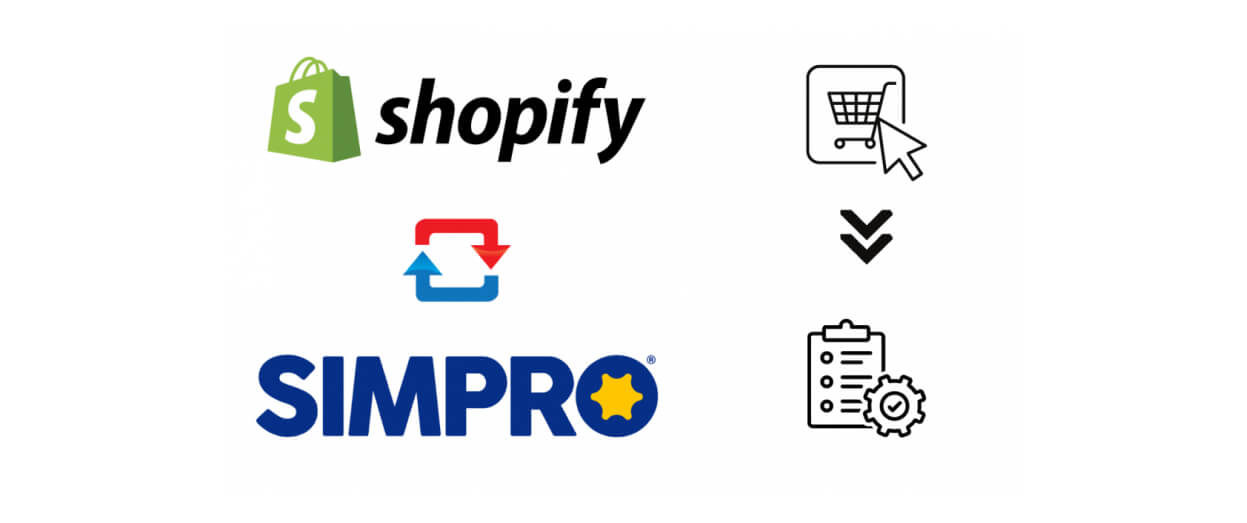
Hari Iyer | SyncEzy
CEO11 Min Read
Sep 25, 2024
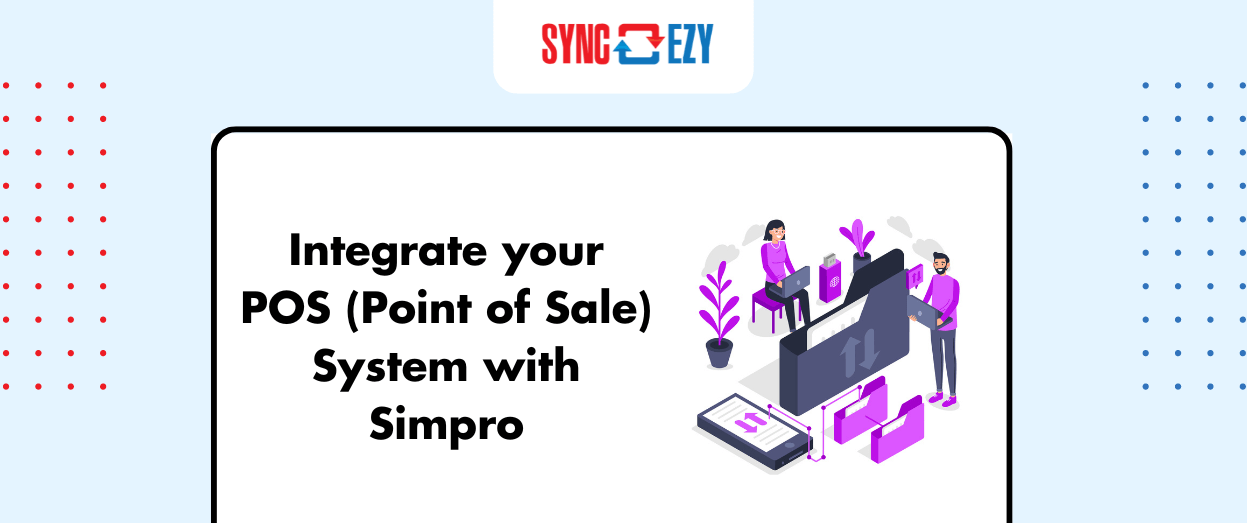
A Point of Sale (POS) system is a combination of hardware and software that allows businesses to conduct sales transactions efficiently and accurately. It typically includes components such as a cash register, barcode scanner, receipt printer, and payment terminal, along with software that manages sales data, inventory levels, and customer information. Modern POS systems often integrate with other business management tools and offer features like sales reporting, employee management, and customer relationship management (CRM). By centralizing these functions, a POS system not only facilitates the checkout process but also provides valuable insights into sales trends and customer behaviors.
Implementing a POS system can significantly enhance business operations by streamlining the sales process and improving data accuracy. It reduces the need for manual data entry, thereby minimizing errors and freeing up staff time for more productive tasks. Real-time inventory management ensures that stock levels are always up-to-date, preventing overstocking or stockouts. Additionally, the detailed sales reports generated by a POS system can help business owners make informed decisions about pricing, promotions, and inventory purchases. Overall, a POS system improves efficiency, enhances customer service, and supports better business decision-making, making it an indispensable tool for modern businesses.
Types of Companies using Simpro that need POS Systems.
Many types of service companies and retail shops can benefit greatly from integrating their POS (Point of Sale) )system with Simpro Job Management. This integration is particularly valuable for businesses that manage both online and offline sales alongside their job management and service delivery processes. Here are some examples of companies that may need this type of integration:
- Pool Supply Companies: Managing inventory for pool chemicals, equipment, and accessories while scheduling installation, maintenance, and cleaning services in Simpro.
- Locksmiths: Coordinating retail sales of locks and security systems with installation and emergency services and managing a fleet of mobile locksmiths..
- Specialist Stores: Balancing sales of niche products with specialized repair or customization services, and onsite work.
- Lifting Equipment Suppliers: Handling sales and rentals of lifting gear along with inspection, maintenance, calibration, and repair services.
- Home Improvement Stores: Synchronizing retail operations for tools and materials with home renovation and installation services.
- Automotive Parts and Services: Managing inventory for parts and accessories while scheduling vehicle / Caravan electrical, HVAC, repair, and maintenance jobs.
- HVAC Companies: Combining the sale of heating, ventilation, and air conditioning units with installation and regular maintenance services.
- Electrical Supply Stores: Coordinating sales of electrical components with on-site installation and repair jobs.
- Garden Centers: Integrating plant and gardening product sales with landscaping and garden maintenance, and construction services.
- Construction Supply Stores: Managing the sale of building materials alongside project management for construction jobs.
For these businesses, the integration of a POS system with Simpro Job Management offers a seamless way to manage sales, inventory, and job scheduling, enhancing overall efficiency and customer satisfaction.
Here are some key benefits of integrating a POS system with Simpro Job Management. We have spoken to businesses that struggle with getting customers through the checkout.
While Simpro is great at a lot of things, a Point of Sale System is not its Core competency, as a result, you are left with
1. Real-Time Inventory Management
Integrating a POS system with Simpro allows businesses to maintain accurate, real-time inventory levels. This synchronization ensures that stock levels are consistently updated across all sales channels, whether online or offline. It helps prevent issues like overstocking or stockouts, which can disrupt operations and negatively impact customer satisfaction. Real-time inventory visibility enables businesses to make informed decisions about restocking and product availability, optimizing their supply chain management.
Furthermore, this integration facilitates better tracking of inventory movements. Businesses can easily monitor which items are selling quickly and which are slow-moving, allowing them to adjust their purchasing and sales strategies accordingly. With real-time data at their fingertips, companies can reduce the risk of inventory obsolescence and improve their overall financial health by minimizing unnecessary holding costs.
2. Streamlined Job Creation, Billing and Invoicing
When a sale is made through the POS system, the integration with Simpro ensures that jobs are automatically generated and recorded in the job management system. This automation reduces the need for manual data entry, thereby minimizing errors and speeding up the billing process. Customers receive accurate service promptly, which enhances their experience and trust in the business.
Moreover, streamlined billing and invoicing improve cash flow management. Businesses can quickly identify outstanding invoices and follow up on payments, reducing the time it takes to get paid. This efficiency not only improves financial stability but also frees up resources to focus on other critical aspects of the business, such as customer service and growth initiatives.
3. Improved Customer Experience
A seamless integration between the POS system and Simpro enhances the customer experience by providing a smooth and efficient checkout process. Customers benefit from faster service and accurate billing, whether they are shopping in-store or online. Additionally, customer data collected through the POS can be used to personalize interactions and emails and offer tailored promotions, further enhancing customer satisfaction and loyalty.
This integration also allows businesses to offer a unified shopping experience. Customers can start a purchase online and complete it in-store, or vice versa, with all their information readily accessible. This flexibility meets the growing demand for omnichannel shopping options, ensuring that businesses remain competitive in today’s market.
4. Centralized Data Management
By integrating the POS system with Simpro, businesses can centralize their data management. Sales, inventory, and job-related information are consolidated in one platform, making it easier to access and analyse. This centralised approach reduces the risk of data discrepancies and ensures that all departments have access to the same, up-to-date information.
Centralised data management also simplifies compliance and reporting. Businesses can generate comprehensive reports that combine sales and job data, providing a holistic view of their operations. These insights can inform strategic decisions, such as identifying areas for improvement, optimising resource allocation, and tracking performance against goals.
5. Enhanced Reporting
With integrated POS and job management systems, businesses gain access to enhanced reporting capabilities. They can generate detailed reports that combine sales data from the POS with job management data from Simpro. These reports provide a comprehensive view of business performance, helping identify trends, measure productivity, and uncover opportunities for growth.
Enhanced reporting also supports better financial management. Businesses can analyze revenue streams, monitor expenses, and assess profitability with greater accuracy. By understanding the financial impact of their sales and job management activities, companies can make informed decisions about pricing strategies, cost control measures, and investment opportunities.
6. Efficient Order Processing
Integrating a POS system with Simpro streamlines the order processing workflow. Orders placed through the POS system are automatically captured and tracked in Simpro, ensuring that they are processed promptly and accurately. This automation reduces the risk of human error and speeds up the fulfillment process, leading to higher customer satisfaction.
Efficient order processing also supports better inventory management. As orders are processed in real-time, inventory levels are updated immediately, providing an accurate picture of stock availability. This visibility helps businesses avoid stockouts and backorders, ensuring that they can meet customer demand without delay.
7. Reduced Manual Data Entry
The integration of a POS system with Simpro minimizes the need for manual data entry, reducing the risk of errors and saving valuable time. Sales transactions, customer information, and inventory updates are automatically recorded in the system, eliminating the need for duplicate data entry and manual reconciliation.
Reduced manual data entry also improves staff productivity. Employees can focus on more value-added tasks, such as customer service and sales, rather than spending time on administrative duties. This efficiency not only enhances operational effectiveness but also contributes to a more engaged and motivated workforce.
8. Improved Cash Flow Management
An integrated POS system with Simpro provides real-time visibility into sales and job revenues, helping businesses manage their cash flow more effectively. By tracking sales and payments in real time, businesses can quickly identify and address cash flow issues, ensuring that they have the liquidity needed to meet their financial obligations.
Improved cash flow management also supports better financial planning. Businesses can use real-time data to forecast future cash flow needs, plan for investments, and manage expenses more effectively. This proactive approach to cash flow management enhances financial stability and supports long-term growth.
9. Better Job Scheduling
The integration between the POS system and Simpro allows for more accurate job scheduling based on real-time sales and inventory data. When a sale is made, the system can automatically schedule the associated job, ensuring that resources are allocated efficiently and that jobs are completed on time.
Better job scheduling also improves customer satisfaction. By accurately scheduling jobs and managing customer expectations, businesses can ensure that they meet their service commitments and deliver a positive customer experience. This reliability builds trust and loyalty, supporting long-term customer relationships.
10. Enhanced Customer Relationship Management (CRM)
Integrating a POS system with Simpro enhances customer relationship management by consolidating customer data from sales transactions and job management activities. This unified view of customer interactions allows businesses to better understand their customers’ needs and preferences, enabling more personalized and effective communication.
Enhanced CRM capabilities also support targeted marketing efforts. Businesses can use customer data to segment their audience, develop targeted promotions, and measure the effectiveness of their marketing campaigns. This data-driven approach to marketing helps businesses attract and retain customers, driving sales and growth.
11. Optimized Inventory Levels
Integration between the POS system and Simpro helps businesses maintain optimal inventory levels by providing real-time insights into sales trends and job requirements. Businesses can accurately track inventory movements, identify fast-moving and slow-moving items, and adjust their inventory management strategies accordingly.
Optimized inventory levels reduce the risk of overstocking and stockouts, improving cash flow and reducing holding costs. Businesses can ensure that they have the right products available to meet customer demand without tying up capital in excess inventory. This efficiency enhances overall financial performance and supports sustainable growth.
12. Seamless Integration with E-commerce Platforms
An integrated POS system with Simpro ensures that online sales are accurately reflected in both the POS and job management systems. This seamless integration supports a unified shopping experience, allowing customers to shop online and offline with the same level of convenience and service.
Seamless integration with e-commerce platforms also enhances inventory management. Businesses can synchronize inventory levels across all sales channels, ensuring that online and offline stock levels are always up-to-date. This visibility helps prevent stockouts and backorders, ensuring that businesses can meet customer demand without delay.
13. Automated Purchase Orders
With an integrated POS system and Simpro, businesses can automate the generation of purchase orders when inventory levels fall below a certain threshold. This automation ensures that businesses maintain optimal stock levels without manual intervention, reducing the risk of stockouts and improving supply chain efficiency.
Automated purchase orders also enhance supplier relationships. Businesses can ensure that they place orders on time and maintain a consistent supply of products, improving their reliability and reputation with suppliers. This efficiency supports better negotiation of terms and pricing, enhancing overall profitability.
14. Flexible Pricing and Discounts
Integrating a POS system with Simpro allows businesses to easily manage pricing strategies and discounts across different sales channels. Businesses can set up and adjust pricing rules, apply discounts, and track promotional performance in real-time, ensuring that they remain competitive and responsive to market changes.
Flexible pricing and discounts also support targeted marketing efforts. Businesses can develop personalized promotions based on customer data, offering discounts and incentives that resonate with their audience. This data-driven approach to pricing and promotions helps attract and retain customers, driving sales and growth.
15. Improved Staff Efficiency
The integration of a POS system with Simpro reduces the workload on staff by automating various tasks and processes. Sales transactions, inventory updates, and job scheduling are all handled automatically, freeing up employees to focus on more value-added tasks, such as customer service and sales.
Improved staff efficiency enhances overall operational effectiveness. Employees can spend more time engaging with customers, addressing their needs, and delivering a positive shopping experience. This efficiency not only improves customer satisfaction but also supports a more motivated and engaged workforce, contributing to long-term business success.
16. Enhanced Security
An integrated POS system with Simpro provides secure handling of sales transactions and job data, protecting against fraud and data breaches. Businesses can implement advanced security measures, such as encryption and access controls, to safeguard sensitive information and ensure compliance with industry regulations.
Enhanced security also supports customer trust and loyalty. Customers are more likely to shop with businesses that prioritize their data security and protect their personal information. By demonstrating a commitment to security, businesses can build trust and confidence with their customers, supporting long-term relationships and growth.
17. Scalable Solution
Integrating a POS system with Simpro provides a scalable solution that can grow with the business. As sales volumes increase and job management needs become more complex, the integrated system can handle the additional data and processes without compromising performance.
A scalable solution also supports business expansion. Businesses can easily add new sales channels, locations, or product lines without the need for extensive reconfiguration or investment in new systems. This flexibility ensures that the business can adapt to changing market conditions and seize new growth opportunities.


